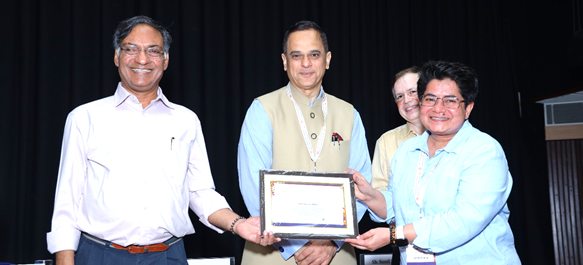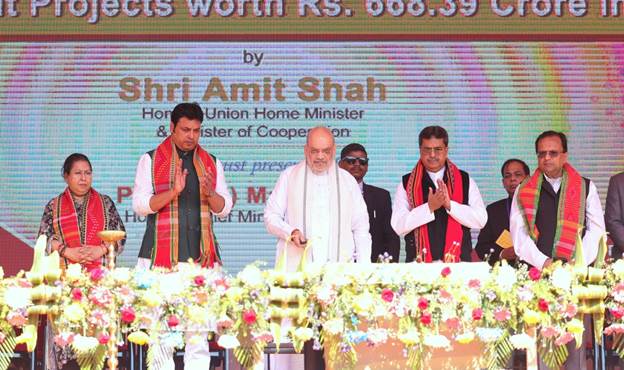New Delhi, Delhi, 15th of July, 2024 : In line with the Hon’ble Prime Minister of India, Shri Narendra Modi’s Vision of India @2047 for scientific and technological advancements during Amrit Kaal, the National Centre for Good Governance (NCGG) and the Indian National Science Academy (INSA) have successfully concluded the 3rd batch of the NCGG – INSA ‘Leadership Programme in Science & Technology (LEADS)’. The programme, held at INSA, New Delhi from 8th to 14th July 2024, saw the participation of 37 scientists from various esteemed institutions such as IIT, NIT, IIIT, IISER, NIPER, DST, CSIR, Ministry of Earth Sciences, Central University, DRDO, ISRO, among others. The objective of the programme is to build the capacities of participating scientists for leadership and good governance in scientific institutions and laboratories, equipping them with the latest knowledge and skills to manage these institutions effectively to meet national priorities and goals.

The valedictory session of the LEADS programme was addressed by Shri V. Srinivas, Secretary, Department of Administrative Reforms & Public Grievances and Director General, National Centre for Good Governance (NCGG). Speaking on the occasion, Shri V. Srinivas, IAS highlighted the programme’s objective to groom young leaders who head various scientific institutions across the nation, enabling them to contribute significantly to institutional development. He expressed his appreciation for the comprehensive curriculum developed by Prof. Ashutosh Sharma, President of INSA, and his team, which covered a wide array of subjects, including litigation, procurement, grievances, financial rules, communication skills, and policy matters.
The INSA-NCGG LEADS July 2024 programme saw the participation of 37 scientists, comprising 23 male and 14 female participants. Notably, this third batch achieved 38% female participation, a significant increase compared to 14% and 25% in the first and second batches, respectively, highlighting the programme’s commitment to fostering gender diversity in leadership roles. The programme attracted participants from 14 states and 17 cities across India, highlighting its extensive geographical reach. Notable state representation included Delhi NCR (8), Maharashtra (4), Uttar Pradesh (4), and others. Key cities involved were Delhi (8), Pune (3), Kolkata (4), and Hyderabad (3). Participants represented a number of prominent institutions, including 13 IITs, 1 NIT, 1 IIIT, 3 IISERs, and several government organizations like DST (7) and CSIR (5). This diverse representation facilitated a rich exchange of ideas and experiences throughout the programme.
This seven-day fully residential programme covered a broad range of topics including Administration, Financial Management and Compliance, Leadership Skills, Communication and Media, and Policy. It provided an intensive learning experience, equipping participants with the skills and insights needed to lead effectively in the fields of science and technology, contributing to the vision of a progressive and innovative India. As of now, INSA and NCGG have jointly successfully conducted three batches of the Leadership Development Programme in Science and Technology (LEADS) with 125 scientists from scientific institutions across the nation.

The valedictory session was chaired by the Prof. Ashutosh Sharma, President, INSA, Course Coordinator, Dr. Brajesh Pandey, Executive Director, INSA, Co-Coordinator, Mr. Sunil Zokarkar, Deputy Executive Director, INSA, Smt. Prisca Poly Mathew, Chief Administrative Officer & Consultant, NCGG, Co-Coordinator, Dr. Gazala Hasan, Assistant Professor, NCGG; along with the dedicated training teams from both INSA and NCGG.










More Stories
Ministers Of Uttar Pradesh Call On The Governor And Invited To Attend The MahaKumbh-2025 In Prayagraj.
IIM Nagpur-Ivey Case Conference 2024 : A Global Platform For Business Management Trends.
Union Home Minister And Minister Of Cooperation, Amit Shah, Inaugurates And Lays The Foundation Stone For Various Development Projects Worth Over ₹668 Crore In Dhalai, Tripura.